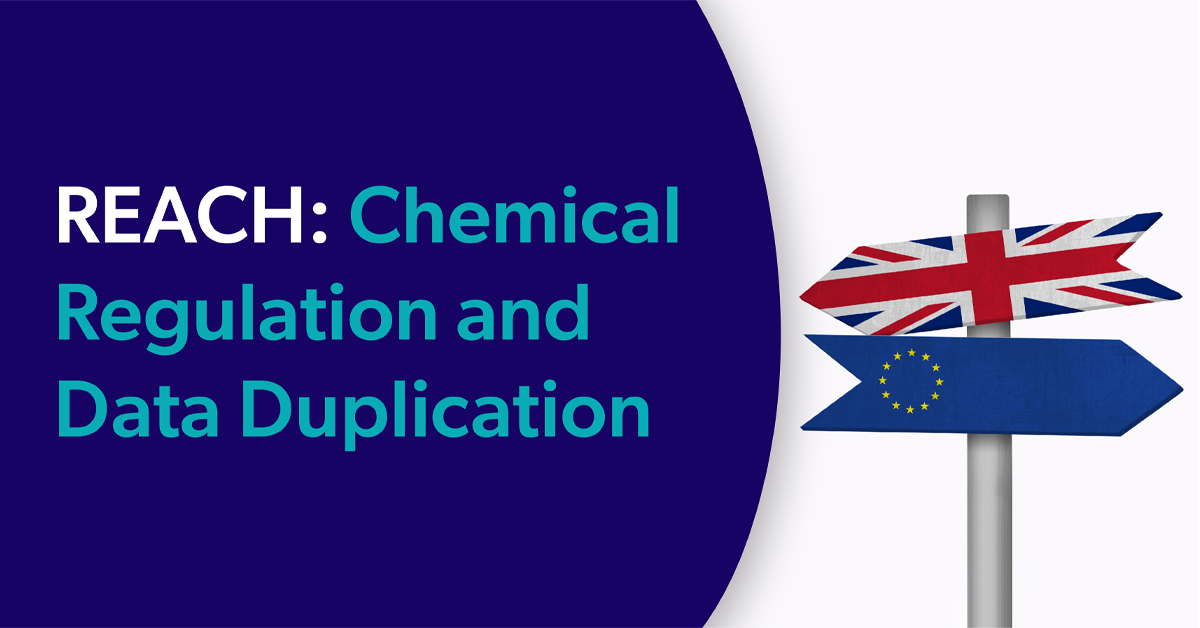
REACH – Chemical Regulation and Data Duplication

NEPIC member Anthesis Ltd looks at how chemicals manufacturers can overcome the challenges of data duplication across numerous disparate databases in order to remain REACH compliant without the headaches.
Our customers often ask us how they can reduce the number of systems they have, whilst remaining compliant with a number of regulatory frameworks, including the European Chemicals Agency (ECHA) and Health and Safety Executive (HSE). REACH compliance, which supports the UK Registration, Evaluation, Authorisation & Restriction of Chemicals, is invariably an important part of the conversation.
Post-Brexit changes mean that in the UK, ownership for REACH data moves from the ECHA to the HSE. The scale of this management task should not be underestimated, both for the HSE, and the companies who are affected. To put it into context, consider that the chemical and pharmaceuticals industry is the United Kingdom’s second largest industry and is a hugely important part of the nation’s economy. In 2019, chemical industry revenues in the UK stood at 62.8 billion euros, with a GVA (gross value added) of 18.3 billion British pounds.
Data duplication
Although the UK REACH requirements appear closely modelled on the EU REACH regulations, retaining the “No Data, No Market” principle, it does mean many companies exporting chemicals to the EU will need to provide the same, or very similar datasets, to two separate regulatory organisations. This can be difficult if companies have operations both in and outside of the trading bloc.
Not only does this present a challenge to chemicals manufacturers in 2022, it also highlights the widespread problem of data duplication across the industry as a whole.
REACH compliance information, and data around substances and dangerous goods, is often held across disparate systems, and is managed by either an individual or a small team within the business. The model is often dependent on the voracity and investment of the R&D teams. These systems are frequently maintained by small third-party vendors or specific skills contained within the IT team, leaving the business vulnerable to losing knowledge through leavers, retirement, or new suppliers.
Integrations across such systems can be costly, time-consuming and unreliable, so duplication is an issue which has been allowed to prevail out of a lack of commercially viable, alternative options. The result is that data duplication occurs daily in the handling of data, copying to documentation, or simply copy-and-pasting by teams before arranging shipments.
Solving with digitalisation
However, it’s clear that such a practice is no longer sustainable and therefore cannot be allowed to prevail. Accepting such a risk, particularly in the wake of the volumes of data affected as a result of Brexit, isn’t synonymous with best practice and therefore must be addressed.
Thankfully, advances in digitalisation have been working in tandem with the challenge. IFS Cloud, for example, can help UK chemicals manufacturers to manage their REACH compliance data more effectively.
With exceptional substance and characteristics management at enterprise level within a single application, divergence of data quality is no longer a risk. System-wide, access and revision-controlled document management allows firms using the application to be certain that certification requirements, data reporting and visibility of handling information of goods is always accessible to users – ensuring you remain compliant, safe and up-to-date with the latest requirements.
Duplicated data around substance risk and impact is not only time consuming, impeding on productivity, it is error-prone, which in an industry where safety is key, simply isn’t an option.
Are you working in chemical manufacturing and tired with numerous disparate databases to remain compliant and optimise planning? Let Anthesis give you a view into how IFS Cloud can do it all in a single application without integrations or third-party products.
Speak to us today, email info@anthesis.co.uk or call us on +44 (0)1260 296530
External URL: https://www.anthesis.co.uk/news/reach-chemical-regulation/
By Anthesis Ltd
443 Views
Recent Posts
- Heliex Power Saves Formaldehyde Producers £500k
- NEPIC spoke with member, Alpek Polyester UK Ltd to learn how they develop their workforce for the future and discover more about their mission to educate on PET
- FEG Global Designs Self-Powering Facility In Ghana
- Thorne & Derrick Electrifying Industry With 3M
- UK MP and chemical engineer Chris McDonald keen to unite the worlds of engineering and politics
Back to News >



